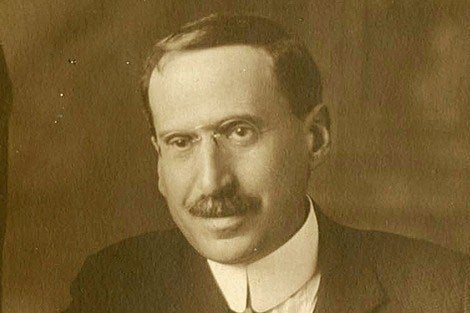March 17, 2015 — The modern era of public health education is generally credited to a May 27, 1915 report by William Welch and Wickliffe Rose, commonly known as the “Welch-Rose report.” But a March 6, 1915 article in the Journal of the American Medical Association (JAMA) by Milton Rosenau, who at the time was the first director of the Harvard–Massachusetts Institute of Technology School for Health Officers—precursor to Harvard T.H. Chan School of Public Health—was a crucial, and earlier, founding document of the era that led to the creation of schools of public health in the United States and around the world.
Rosenau’s contribution to public health education’s beginnings is outlined in a March 17, 2015 JAMA article by the Harvard Chan School’s David Hunter, Dean for Academic Affairs, and Dean Julio Frenk. Their article accompanies Rosenau’s March 1915 article, parts of which are reprinted in the issue.
“The Rosenau piece also provides a fascinating glimpse into the mind of one of our founders at a time when the Harvard-MIT School for Health Officers was pioneering public health education in North America,” said Hunter.
Rosenau’s article—which issued a call for providing education specifically for public health researchers and professionals—“contained almost all of the key recommendations present in the Welch-Rose report,” Hunter and Frenk wrote. Rosenau, Welch, and Rose were among a number of leaders in the public health movement who were working in the early part of the 20th century to address the need for public health training. They all participated in an October 16, 1914 meeting in New York, convened by the general education board of the Rockefeller Foundation, which was considering proposals to fund the establishment of one or more schools of public health. The outcome of that meeting was that Welch and Rose were asked to develop a plan for a new public health school.
The resulting Welch-Rose Report and Rosenau’s JAMA article contained many of the same recommendations. But there were “substantial underlying tensions” regarding the future of public health education among these leading scholars, according to Frenk and Hunter. For one thing, there was jockeying about which institution would receive initial funding from the Rockefeller Foundation to endow a school of public health (the funding went to Johns Hopkins, and Welch became the first dean of its school of public health). For another, there were differing philosophies about the nature of public health education; Rosenau, for example, placed greater emphasis on practical instruction.
“With the celebration this year of the centenary of the Welch-Rose report, the prior publication in THE JOURNAL of the Rosenau article is a reminder that this report was the product of a consultative, and somewhat disputative, process,” wrote Hunter and Frenk. “The fact that the Rockefeller Foundation made its first award to Johns Hopkins University led by William Welch, and the eponymous nature of the report that led to the award, has tended to obscure the contributions of many others, of which the first one to be found in the published literature was Rosenau.”
